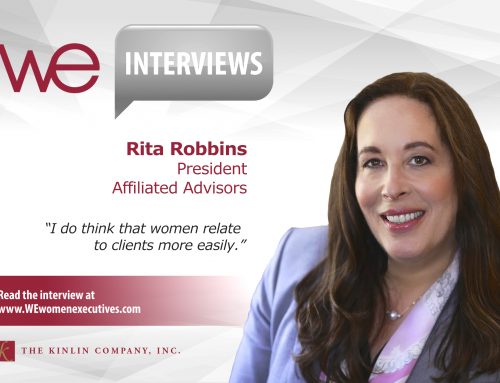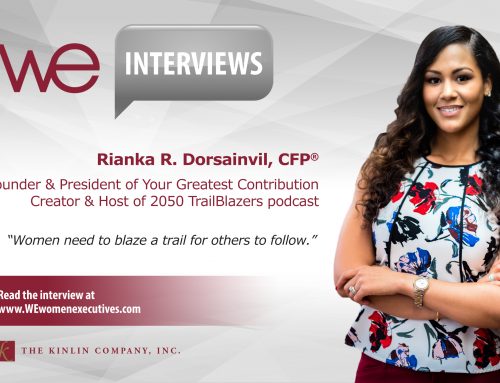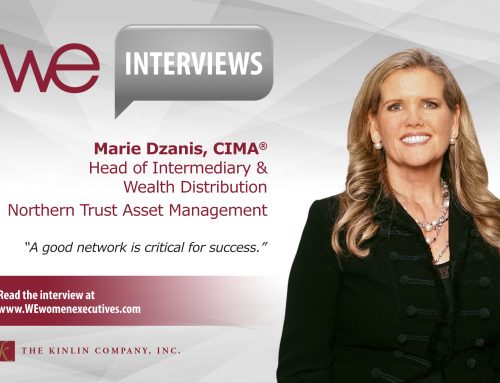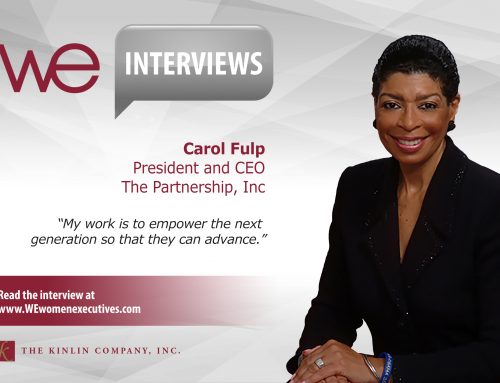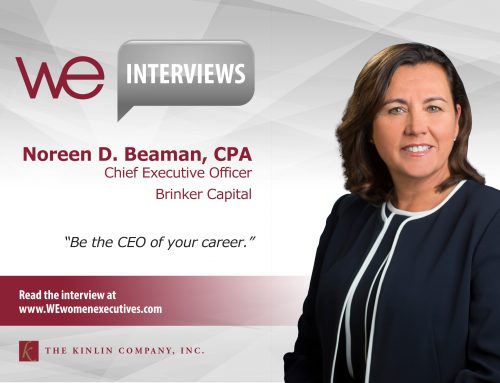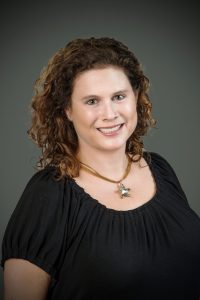 Rohanna Wise
Rohanna Wise
Founder & CEO
Wise Trading Technologies
Rohanna Wise is the founder and CEO of Wise Trading Technologies, a start-up in the fintech sector. The company’s flagship product, WiseRisk, is a currency exposure management system that automates and optimizes currency risk management for asset managers, an area in which Rohanna has great depth of experience.
A seasoned expert, Rohanna has been involved with FI and FX trading and trading technology for over two decades, spending eight years with MFS Investment Management and another two with Wellington Management before launching Wise Trading Technologies in 2015.
Seizing an opportunity
You’ve worked in corporate America your entire career. When did you realize that you wanted to take the leap from a big company to your own start-up?
“I saw an obvious, and very large, opportunity and I didn’t want to let it pass and then spend the rest of my life wondering what would have happened if I hadn’t tried it. Currency exposure is an issue that seemed difficult to address using internal teams at institutions where I worked, and it wasn’t something that the large vendors were focused on either.
“There were also several industry trends coming together with respect to globalization. International diversification of portfolios is growing continuously, currency volatility is increasing, and asset managers are not well equipped to protect their clients from that currency exposure. This was also a great opportunity for me because I spent 20 years in the shoes of my target customer. So, while the move was definitely a bit of a jump, there were so many things coming together that the opportunity seemed obvious. What’s more, there are few people who really understand the technology and the business well enough to address it. I’m one of them, as is my co-founder.”
It sounds like you are passionate about shielding investors from unwanted currency risk and believe that all investors are entitled to such protection.
“That’s correct. I found that some of the large asset management firms had created systems, but I wondered what the thousands of smaller firms were doing. I conducted a search for this type of functionality and discovered there was nothing out there. Proper management of currency exposure requires sophisticated technology that I want to make available to all asset managers.”
Addressing a need
Having gained a sense of the circumstances that compelled Rohanna to start her company, I was curious as to her experience thus far. Can you talk a bit about the pros and cons of your decision to launch your own firm, I asked.
“I’ll start with the cons. I used to have a good job that provided steady income and a sense of security, and I don’t have that anymore. But that loss of security is dramatically outweighed by the pluses, both personally and professionally. On a personal level, I get to be my own boss. I’m home more, with less of a commute, so I spend more time with my kids, and I’m out there meeting lots of interesting people. It’s energizing, and it’s been fun. Professionally speaking, I believe there’s a need to level this playing field for asset managers and the clients they represent, and I’m helping to do that. Let me explain.
“Consider the investment cycle. In the beginning, an investor hands her money to someone and it’s gone. It goes into an ETF or a mutual fund and many layers separate the investor from the investment. That separation creates a vulnerability; people don’t know where their money really is. You can get away with a lot when you have so little oversight from the people whose investments are at stake.
“I’ve always rejected Bernie Sanders’ approach – the idea that we need to break apart the big banks – but he is right, there are some things that are broken, and there is corruption that unfairly benefits those big banks and does not benefit the asset managers who are trying to manage your money well. Therefore, a big part of what WiseRisk does for clients is minimize how much of their currency flow needs go to the sell side, because again, the sell-side currency desks are the ones where people are getting arrested and sued.
“The corruption is widespread; I think that’s probably well proven at this point. They’re taking your money, but they don’t have your best interests at heart. My feeling is ‘Let’s try to keep the money away from them and force them to step up their game a bit.’”
Do you think there will come a time – or maybe it’s already happened – where consumers will be asking their money manager whether their portfolios are being hedged properly?
“There’s a big demand for currency-hedged ETFs or mutual funds, so there is obvious demand from the retail side. Additionally, because we now experience significant currency swings that have a major impact on people’s returns, we see financial advisors starting to press on the institutions and ask, ‘Are you managing? Are you hedging your currency correctly?’ And even when those institutions say, ‘Yes, we hedge,’ some advisors are responding, ‘Okay, how? How precise is your hedge, and how do you maintain it?’ Because maintaining a precise hedge requires monitoring a lot of data points that move all the time, and there’s really no way to do that without sophisticated software.”
What added value does WiseRisk represent in this equation?
“As we’ve discussed, clients are asking for a service, and many firms are not set up to provide it. Firms need to respond to this demand, but a currency exposure management system is extremely expensive to build in-house. Most firms are not going to have the resources for it, and using spreadsheets is obviously not a good way to do anything, so that’s one value we add. Another is the ability to empower institutions to keep their clients’ money and prevent less of it from crossing the spread.”
Committing to the process
Your company is relatively young – you launched in 2015 – and you’re a woman in fintech, which is a male-dominated sector. What’s it been like to get the firm up and running?
“Fintech is obviously a heavily male-dominated sector, but that’s been the case for my whole career – I don’t know anything different. Statistically speaking, I believe something like 40 percent of the employees in fintech are female, while only 20 percent are top executives. I always view the gender issue case by case – I never assume or speculate – but the statistics I see indicate that women-founded companies are receiving 2.5 percent of venture capital money, which is a very low number.
“Additionally, we all know the sales cycle for asset managers is unfathomably slow, so I did not start trying to raise money until very recently, in order to wait out the pace of this industry. I’ve been a part-time consultant, as has the rest of the team. We are lucky because we’re in an industry in which you can often get hourly contract work as a developer or business analyst. I’ve been able to do that, and it has helped finance the company. We’ve been fortunate to have found a great product-market fit. In fact, keeping up with the demand has been one of our bigger challenges.
“In terms of the development of the core functionality, that has been done by me and my co-founder. We dedicated three months to get WiseRisk off the ground, during which time neither of us did any contract work. And until recently, the rest of the business has been built on equity. We’ve been going back to some of the best people we’ve worked with, asking if they want to get involved and giving them equity incentives. That’s how we’ve attracted our advisors and developers. We allow people to live wherever they want – we have no attachment to a locale – so we’ve assembled the best team possible because we’re not restricted by geography.”
How many people are on the team at this point and what are their responsibilities?
“At this point, it’s me, my co-founder – who’s the CTO – two developers, a quality assurance manager, an implementation manager, a COO/CFO and a team in Romania that does some of our development. We also have a chief marketing officer, an associate and a new head of business development. Altogether, we are ten people spending all or part-time.
“Until very recently, everyone was working part-time. I secured some funding, and we now have two beta clients who are piloting the system. We need to be able to move them into production, and we also have others who would like to be implemented, so we’ve really picked up the pace a lot.
“Our current beta clients are parallel testing our system alongside their existing systems – they are not yet live. We have an implementation manager working with these companies; she’s the first line of support. We also have a feedback feature in our application, which has been well-received. While users are in the application, they can jot down a note, which goes directly to our team. The best person to take the question responds, allowing us to get back to clients quickly.”
Finding something you love
At this point in the conversation, it was clear to me that Rohanna has taken on a lot: starting and funding a new business, consulting part-time, publishing a book, and caring for two young children. How do you manage to do all this while also caring for yourself, I inquired.
“Well, to clarify, although I am still doing the part-time consulting work, I will end that when I complete my current project. And it’s true, I have taken on a lot, but I’m fairly disciplined about putting down work at least once a day. I’m pretty strict about not working at night – when evening comes, I sit down with my family, we have dinner and I’m done. I don’t go back to work after dinner. I use that time to hang out with my family, catch up with friends, that sort of thing. More importantly, though, it doesn’t feel like work because I love this stuff. It’s so energizing and fascinating to me that it feels like a hobby.
“Yes, I work very hard, but I love it. I found the traditional financial services environment stifling. It was very stressful to me for all the wrong reasons – the politics, the time spent on tasks that didn’t interest me, etc. To be away from that now feels like breathing – it’s just such a relief. Admittedly, I would have managed my career the old-fashioned way if I could have – I would have gone to a firm, stayed there forever and climbed the ladder, but I never figured out how to do that. My personality doesn’t fit into the culture of those organizations, and I always felt underutilized. I had to implement someone else’s ideas rather than my own, and quite honestly, it depressed me. I’m exponentially happier being my own boss. But I was afraid to make the leap for a very long time. I used to watch people from software start-ups come in and make their pitch and think, ‘That looks so much more interesting than what I do, but I could never make that jump.’ It always seemed too scary, until one day I decided, ‘I have to do something different. I can’t spend the rest of my life like this.’ And here I am.”
Leveling the playing field
I was also eager to hear about Rohanna’s book, Hedging Wisely, which she published in July, 2016. How are you doing with that, and where can it be purchased?
“The book is available on Amazon. It’s a how-to guide on the fundamentals of currency hedging. I wrote it because I’ve found that many firms aren’t doing any currency hedging because they don’t know how. Currency is an especially difficult asset class to master, and it’s not a big revenue generator. So, I wrote Hedging Wisely to give people one-on-one instruction on implementing the basics of a currency hedging strategy.
“Currency is really a by-product of an activity that asset managers enjoy and are good at, but they are saddled with this big currency exposure problem. It’s not their professional choice, and it’s nasty — the math is very difficult. It took me years and years to understand this well enough to know what is required to implement a precise hedging strategy, but it doesn’t get prioritized because there’s always something that’s going to make the firm a lot of money. So, I wrote the book to go with our product, because I feel like these smaller asset managers, in particular, don’t have any currency expertise.
“Nor does every asset manager have the goal of making as much money as possible.There are many that have different mandates – perhaps they have a mandate to invest in women-led or LGBT deals, or socially responsible opportunities. There are many ways that people use capital to promote change in the world. How on earth are they going to have access to any kind of sophisticated trading technology? So, my thought was, ‘Let’s level the playing field a tiny bit, because they shouldn’t have any less ability to protect their investments from currency risk than the places that manage billions and billions of dollars.”


